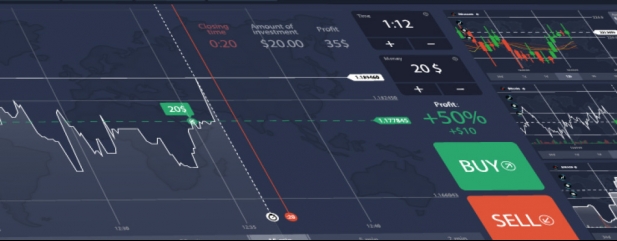Archived article
Please note that tax, investment, pension and ISA rules can change and the information and any views contained in this article may now be inaccurate.
Explaining stock options and warrants and why they are important

As a beginner investor, the most important things to understand are how to buy and sell shares, what can move a company’s share price and how and where to find investment ideas.
But when you gain some investing experience, you may come across things called stock options and warrants, particularly if they are relevant to a company you own shares in.
Mostly popular with financial institutions, options and warrants are tools which can help investors potentially benefit from rising and falling share prices.
But it’s important to note they are way up the risk spectrum and should only be used by highly experienced investors. They’re relevance to most of us will be the impact they can have on an ordinary shares in a company.
WARRANTS AND OPTIONS 101
So what are warrants and options? A stock warrant gives a shareholder the right to purchase a company’s shares at a particular time in the future, at a price set in the present, known as the exercise price.
Warrants are issued directly by the company concerned, so when an investor exercises a warrant, the shares that fulfil the obligation are not received from another investor but directly from the company.
A stock option works in a similar way but is not issued by the company. Instead options are bought from a market maker (a professional buyer and seller of shares).
There are two types of warrants – a call warrant and a put warrant. A call warrant is the right to buy shares at a certain price in the future, and a put warrant is the right to sell back shares at a specific price in the future.
Likewise there are two types of options – a call option and a put option. A call option gives you the right to buy shares in a particular company at a fixed price within a set period, while a put option gives you the right to sell shares in a particular company within a set period.
WHEN PEOPLE PURCHASE THEM
Stock options are purchased by investors when they expect a company’s share price to go up or down (depending on the option type). For example, if a stock currently trades at £4 and an investor believes the price will rise to £5 next month, the investor would buy a call option today so that next month they can buy the stock for £4 a share then sell it for £5 a share, making a profit.
Stock options trade on an exchange, just like stocks themselves. When an investor exercises a stock option, that investor typically passes the shares to another investor.
Usually options last for three months and you can either buy or sell the shares, or let the option lapse. There are also traded options which can be bought and sold in their own right.
A stock warrant differs from an option in two key ways. A company issues its own warrants, and the company issues new shares to satisfy the transaction. A firm may issue a stock warrant if they want to raise additional capital.
You might, for example, buy a warrant for 10p which allows you to buy shares in a company for 100p.
How options and warrants work in practice
In September 2020 gold and lithium miner IronRidge Resources (IRR:AIM) gave guidance to shareholders about its options and warrants.
The company had on issue a total of 32 million warrants and 23.9 million options, exercisable at 12p each through to 25 June 2022. It said that these warrants and options can be exercised by the holder at any time up to that date.
However, it added that all of the warrants and options are also subject to an early exercise trigger in the event that the company’s shares trade at an average price of 16p or above for a period of five consecutive business days, called a call condition.
Where the call condition has been satisfied, this means the company can call on all shareholders to exercise their warrants and/or options. It added that any warrants or options not exercised at the end of the agreed 30 day period (20 days to elect to convert and 10 days to pay) would be cancelled by the company.
But IronRidge also said that while the call condition outlined above had been satisfied, it didn’t intend to call on investors to exercise their warrants and/or options until 2021, as it already had all the money it needed to carry out its current activities.
WARRANTS CAN BE LONGER TERM THAN OPTIONS
Stock warrants can last for up to 15 years, whereas stock options are short-term only.
One important thing to note is the dilutive impact on shareholders. If a company you own shares in is thinking about issuing warrants, or already has some outstanding, the dilutive impact is something you’ll need to know about.
This is because if the company says it is considering issuing warrants, that means more shares coming into issue, and so an investor’s ownership percentage of the company will decrease.
Often the market reacts negatively to stock dilution, and when a company makes an announcement regarding warrants usually its share price falls immediately to reflect the potential dilutive impact of the yet-to-be-issued warrants.
Important information:
These articles are provided by Shares magazine which is published by AJ Bell Media, a part of AJ Bell. Shares is not written by AJ Bell.
Shares is provided for your general information and use and is not a personal recommendation to invest. It is not intended to be relied upon by you in making or not making any investment decisions. The investments referred to in these articles will not be suitable for all investors. If in doubt please seek appropriate independent financial advice.
Investors acting on the information in these articles do so at their own risk and AJ Bell Media and its staff do not accept liability for losses suffered by investors as a result of their investment decisions.

 magazine
magazine









